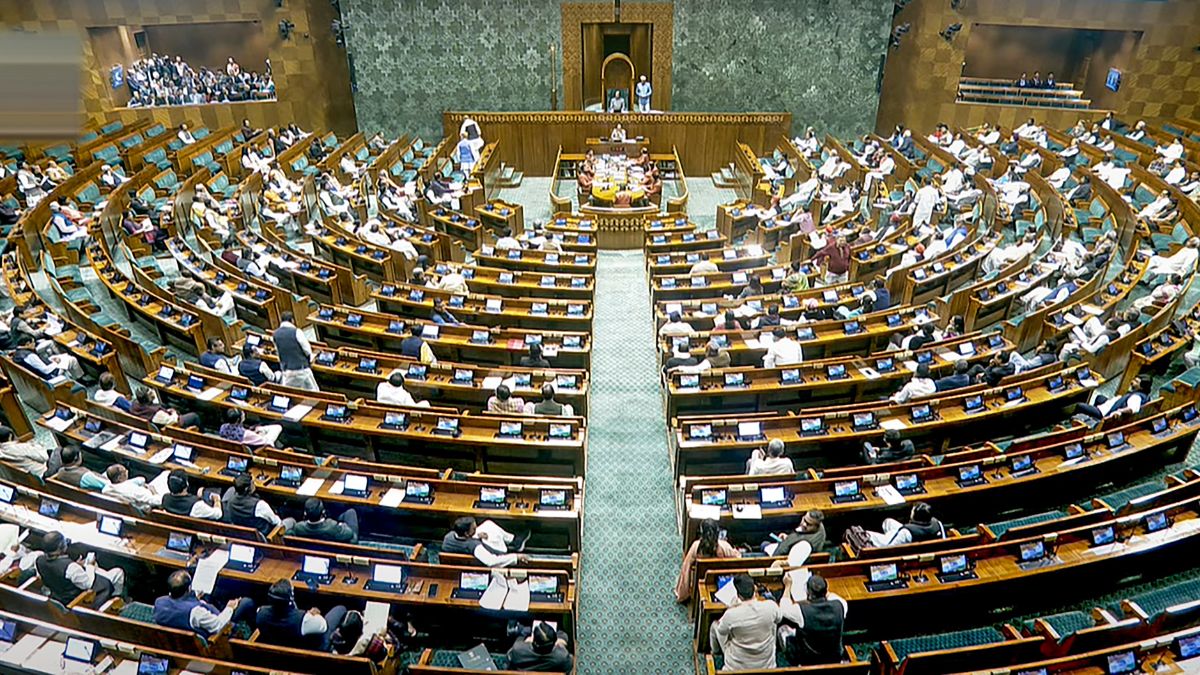The Centre is likely to introduce a new bill to regulate the entry of foreign nationals into India. Reports say Union Home Minister Amit Shah could bring the Immigration and Foreigners Bill, 2025, in the ongoing Budget session of Parliament.
The bill aims to impose stricter punishment on foreigners entering India without a valid passport or visa. The proposed legislation will replace the existing laws — the Passport (Entry into India) Act, 1920; the Registration of Foreigners Act, 1939; the Foreigners Act, 1946; and the Immigration (Carriers’ Liability) Act, 2000.
Let’s take a closer look.
What’s in the bill?
The new bill will empower the Central government to provide for the requirement of passports or other travel documents concerning people entering and leaving India and for regulating matters related to foreigners.
The Statement of Objects and Reasons of the Immigration and Foreigners Bill, 2025 states the proposed legislation deals with matters relating to immigration, specifically the functions of immigration officers, the requirement of passports and visas and other issues.
The bill will set down the role of universities, hospitals, and other medical institutions admitting foreign nationals, along with specifying matters related to foreigners and their registration.
“The bill will have provisions relating to foreigners whose movements are restricted, the power of civil authority to control places frequented by foreigners, the provisions relating to the liability of carriers and its obligations, the offences and punishment for contravention of certain provisions of the proposed legislation and the composition of offences,” as per the news agency.
The proposed legislation also gives the power to the Centre to restrict or regulate the entry, exit, and movement of foreigners within India. This includes requiring foreigners to leave at their own cost, undergo biometric registration, or bar their entry from specific areas, reported Times of India (TOI).
Impact Shorts
More ShortsRole of universities, hospitals
The bill entails provisions requiring universities and higher educational institutions admitting any foreigner to furnish their details to a designated registration officer.
This also extends to hospitals, nursing homes and other medical institutions admitting foreigners.
As per Hindustan Times (HT), Clause 9 of the bill says: “Every university and educational institution or any other institution admitting any foreigner shall furnish information to the Registration Officer in respect of such foreigner in such manner as may be prescribed”.
Its Clause 10 states, “Every hospital, nursing home or any other such medical institution providing medical, lodging or sleeping facility in their premises shall furnish information in respect of any foreigner taking indoor medical treatment or their attendant for whom such lodging or sleeping facility has been provided to the Registration Officer in such manner as may be prescribed”.
Onus on carriers
The bill also lays down the liability of carriers and their obligations. It puts the onus on the carrier to remove a foreigner who has been denied entry into India .
The carriers landing or embarking at a port or place in India should provide passenger and crew manifest, advance passenger information and crew on board such aircraft, vessel or other mode of transport.
“If any foreigner whose entry has been refused, such foreigner shall be handed over to the carrier by the immigration officer and it shall be the responsibility of that carrier to ensure his removal from India without delay,” the proposed legislation states.
Harsher punishment
Foreigners entering India without a valid passport or visa could be imprisoned for up to five years and a fine of up to Rs 5 lakh. If entry, stay, or departure is done through fake travel documents, they can be punished for a minimum of two years to a maximum of seven years, with fines ranging between Rs 1 lakh and Rs 10 lakh.
Foreigners who overstay their visa, violate visa conditions, or enter restricted areas may face a jail of up to three years or fines of up to Rs 3 lakh, or both.
Transport operators could be punished if found ferrying individuals without valid documents. Immigration officers can also impose penalties of up to Rs 5 lakh on carriers. Authorities can seize or detain the vehicle, including aircraft, ship or another type of transport, in case of a failure to pay a fine.
With inputs from agencies
)